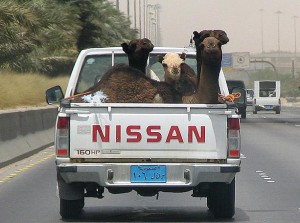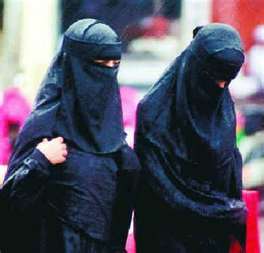The New York Times, Wed, June 5, 2024: “Surprising, Unsettling, Surreal: Roaming Through Saudi Arabia,” by Stephen Hiltner.
In this article for The New York Times, Hiltner recounted his recent travel in Saudi Arabia, alone and without a driver. His journey appeared fascinating, beginning with the historic district in Jeddah. One of the first sites after Jeddah was the UNESCO World Heritage site in Hegra, with its rock-built structures.
Another stop was the Sharaan Nature Reserve, where the author slipped though a narrow canyon into a vast open plain surrounded by cliffs.
The author’s journey reminded me of my own tourist activities when I worked for the State Department in the U.S. Consulate at Jeddah. The atmosphere surrounding us then was quite different from Hiltner’s.
I remember eating in a Jeddah restaurant with fellow women friends, safely away in the “family” section. Afterward, we took refuge in a rug shop to await the end of prayer call, which was strictly observed.
Tourism, then, was not encouraged as it appears to be today. On one day’s outing, exploring the countryside with a group of friends, we of course steered clear of the forbidden city of Mecca, stopping to have our photos taken by the sign forbidding all travelers except Muslims into that city, before we traveled elsewhere.
We stopped and rested close to a spot where some boys were playing games. They closely examined us as we picnicked. No restaurants in the rural areas, of course, at least not open to women. We never saw any girls playing outside, either.
For rest that night we returned to our own homes on the consulate compound in Jeddah.
I recall another trip during that time, this one with my future husband for a jaunt out of town to hike along some dry creek beds. We left the car to hike and returned to find that someone had stolen the lug nuts off our tires. What to do? Wait for friends to note our absence and send out a search party? That was the one time I had neglected to follow the usual practice of letting friends know were we were going. If we didn’t return, no one would know where to send out that search party.
Fortunately, several Aussie families appeared on their own trip and went for help, taking Ben to find the necessary lug nuts in a gas station in a nearby town.
Today, any trip we took to Saudi Arabia would probably be with a tourist group. I’ve become a bit more cautious with experience.


 In my novel Singing in Babylon, the female protagonist, Kate, moves to Saudi Arabia from her native Tennessee to teach. She travels for her first time outside the United States. On a drive with her friend, Philip, an American journalist on assignment to the Middle East, she notices a veiled and gloved woman pushing a child on a swing in a public park. The woman glances at the unveiled Kate, and Kate wonders how the woman feels about this Western female’s intrusion into her world.
In my novel Singing in Babylon, the female protagonist, Kate, moves to Saudi Arabia from her native Tennessee to teach. She travels for her first time outside the United States. On a drive with her friend, Philip, an American journalist on assignment to the Middle East, she notices a veiled and gloved woman pushing a child on a swing in a public park. The woman glances at the unveiled Kate, and Kate wonders how the woman feels about this Western female’s intrusion into her world. Fast food restaurants, unveiled women, and automobiles bring unprecedented freedom and rapid change to a nation in one or two generations. These changes arrived in a country accustomed to centuries-old merchant towns, Bedouins herding camels and goats, and ancient tribes familiar with the customs of generations.
Fast food restaurants, unveiled women, and automobiles bring unprecedented freedom and rapid change to a nation in one or two generations. These changes arrived in a country accustomed to centuries-old merchant towns, Bedouins herding camels and goats, and ancient tribes familiar with the customs of generations. When I was assigned to work in Saudi Arabia, I thought I would wear an abiya, the black robe worn by most women there. It was the custom, I figured, and I would follow it.
When I was assigned to work in Saudi Arabia, I thought I would wear an abiya, the black robe worn by most women there. It was the custom, I figured, and I would follow it. I knew a Saudi woman, educated in the U.S., who chose the old customs when she returned to her country. She indicated a disdain for much of what she had seen in the United States: the pornography, the broken homes, the casual sex. For reasons like these, some Middle Eastern and other women proudly don the abiya. For them, it is a symbol of the value they place on the family and the importance of a woman’s worth aside from her physical appearance. For them, it allows a focus on who they are and not on their worth as a sex object.
I knew a Saudi woman, educated in the U.S., who chose the old customs when she returned to her country. She indicated a disdain for much of what she had seen in the United States: the pornography, the broken homes, the casual sex. For reasons like these, some Middle Eastern and other women proudly don the abiya. For them, it is a symbol of the value they place on the family and the importance of a woman’s worth aside from her physical appearance. For them, it allows a focus on who they are and not on their worth as a sex object. As an American Christian living in Saudi Arabia, I found clues to my own people.
As an American Christian living in Saudi Arabia, I found clues to my own people.